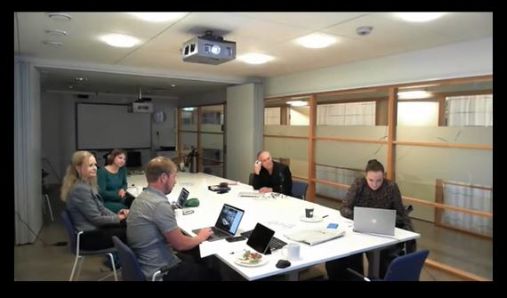UiO Norden project NordEd (Nordic Education Model) organised a seminar, titled Corona-generation, for discussing new research emerging from the home-schooling experiences during the spring 2020-school closures. The seminar aimed to discuss the research we have available on home schooling and question whether the school closures may have negatively affected school leavers’ future prospects in terms of accessing higher education.
QUINT Researcher and vice director Marte Blikstad-Balas was invited to speak about the findings from a survey conducted in April 2020 with 4,642 parents who have children in primary education who were home schooled. The survey was conducted together with QUINT Researchers Astrid Roe and Kirsti Klette from the University of Oslo, and Cecilie Pedersen Dalland from OsloMet with the purpose of mapping out how home schooling took place across Norway, and how it was experienced by the parents.
Remote schooling and contact with teachers
The survey revealed major differences between how much contact children had with their teachers, the attendance requirements and the extent to which schools used digital tools and “real time”-teaching through programmes like Zoom or Teams. Especially the youngest children generally had the least contact with their teachers, Blikstad-Balas explained.
- While a large majority of students at the lower secondary level communicated with teachers up to several times a day, a third of the students at the primary school level only communicated with their teacher once a week or less.
The researchers also found that the teachers’ use of technology to facilitate online teaching tended to be very traditional, and was mostly used for individual task-based working. The social possibilities of the different platforms were not utilised that much. Interestingly, previously conducted QUINT research by Professor Kirsti Klette and Blikstad-Balas into the use of digital technology in the classrooms also shows this tendency.
Parents' experiences varied greatly
There was big variation between how parents experienced the home-schooling. One of the negative factors most parents mentioned, in an open ended question where they could describe challenges, was that it was difficult to combine their own work from home whilst helping children. Some mentioned that this often meant that they had to do their own work in the evenings. Some parents also found it challenging and demanding to be in the role of a teacher for their own children and to motive them for schoolwork.
The positive aspects experienced by many parents, on the open ended question about potential benefits of home schooling, were that they gained a better understanding and insight into the children’s schoolwork and that it was good for the family to spend more time together. Working and schooling from home also often resulted in less stress and better time management, according to some of the parents.
For those interested in hearing the presentations (mostly in Norwegian) a recording of the seminar is available online.
The seminar was also featured on a national newspaper Aftenposten in Norway.
